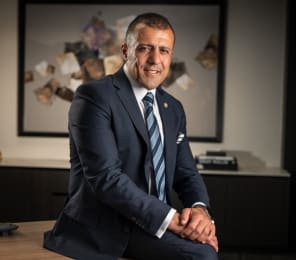Andrew Kinkade (pictured above), Managing Director of Bupa Aged Care and Villages, has responded to a letter from Sean Szabo, Industrial Officer of the Australian Nursing and Midwifery Federation NSW Branch and signed by nearly 400 staff, which called for the aged care provider to address understaffing and adhere to mandated care minutes.
Sean's letter, which was signed by AINs, ENs, and RNs, claimed that understaffing is impacting resident care and risking staff safety.
Andrew's responding letter, which has been seen by The SOURCE, rejected several of the union's claims, including that an AIN is often left to care for up to 35 residents, and that RNs are replaced with AINs on staff rosters.
"We acknowledge we are not yet meeting the new Care Minute targets across our homes.
"As the largest residential care provider in regional Australia, we are doing our utmost to overcome the sector workforce shortage and in our pursuit of Care Minutes, are balancing other risks to our team and residents," Andrew wrote.
The provider has employed more than 1,000 new RNs and carers in the last year in regional homes, he wrote.
He said Bupa is currently accepting its "the biggest intake ever" of new graduate RNs - 60 in total.
To attract staff, Bupa has offered free health insurance to regional staff and their families, and discounted health insurance for all other team members. It has offered free onsite accommodation in areas where there are housing shortages, and it is offering scholarships for senior RNs wanting to qualify as Nurse Practitioners.
Andrew said Bupa tries to minimise the amount of agency staff it uses.
"While we continue to spend millions each month on agency, we don’t want to use agency simply for ‘extra minutes’... excessive agency has other negative consequences... It detracts from continuity of care and relationships and impacts team culture and effectiveness."
Bupa closes beds when there is not enough staff to deliver quality care, which has an impact on the home's viability, but also on regional health networks, as reflected in the rising number of hospital patients stuck in hospitals awaiting an aged care bed.
Shaye Candish, General Secretary, NSW Nurses and Midwives’ Association told The SOURCE the union is considering how to respond, but remains concerned that staff shortages are impacting quality care.
"Our members strive to deliver the best care possible. It is becoming increasingly difficult for them to deliver this quality care due to inadequate levels of staffing and non-compliance of care minutes," she said.











